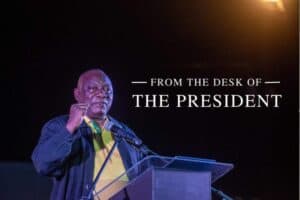'Corona or no corona, our government has failed us.'

It is a new year but with the same old challenges for drought-stricken communities in Limpopo, with the second wave of Covid-19 having killed dozens of people in the province.
While many people are hopeful 2021 will bring hope and relief, disillusioned residents of two Limpopo regions, Sekhukhune and Mopani, say they might as well start writing their own obituaries as they still have to deal with chronic shortages of drinkable water.
The disenchanted residents told The Citizen they don’t have much hope of surviving the second wave because “government’s effort to bring clean pipe drinking water on our doorsteps has failed dismally”.
“Corona or no corona, our government has failed us,” Sannyboy Maseko of Leeuwfontein in Marble Hall said yesterday.
“We have two of the biggest dams in Limpopo, the Flag Boshielo and the De Hoop dams. Construction for these dams had cost billions of rands.
“These are the dams that are now full to capacity, but still residents continue to compete for dirty water with animals such as baboons, cats, dogs, donkeys and cattle.”
Freddy Mphahlele of Tafelkop, outside Groblersdal, said soon after President Cyril Ramaphosa declared the state of national disaster, Human Settlements, Water and Sanitation Minister Lindiwe Sisulu made R143 million available for water relief projects.
This, said Mphahlele, included the drilling of boreholes tankering of water and erection of JoJo tanks.
“But we are carrying coffins every weekend. Our cemeteries are like recreational centres. These are people whose lives could have been spared if water projects were completed,” he said.
In Mopani, government has spent R3.5 billion on the failed Giyani water project.
The project, which was commissioned in 2014 and expected to be completed by 2017, is yet to bring fresh water to Giyani and its 55 villages.
Residents such as Ntsako Nkuna of Dzumeri and Sasabona Baloyi of Lekgwareng still have to dig deep in their pockets to buy water from those who have boreholes in their yards.
“When former president Jacob Zuma visited Giyani in 2014, he promised water shortages would soon be a thing of the past. But six years down the line, all that became impossible,” said Nkuna.
“We’re scared coronavirus will kill all of us because we don’t have water to wash our hands, to drink or bath. We might as well start writing our own obituaries because no water means no life.”
Responding to a question from the Inkatha Freedom Party (IFP) in parliament in December, Sisulu said work had resumed in Giyani after investigations into the R3 billion tender stalled.
In 2018, the Special Investigating Unit headed to court to recover billions of rands lost from the project while in 2019, the unit raided the Lepelle Northern Water offices to source documents.
Sisulu said the overall progress on the bulk water distribution pipeline project was now at 54% and that the construction of the pipeline that would augment water supply deficiencies in Nsami scheme was at 35% overall
completion.
She said the Giyani water infrastructure was old, which resulted in frequent pipe bursts and leakages.
For more news your way, download The Citizen’s app for iOS and Android.
Support Local Journalism
Add The Citizen as a Preferred Source on Google and follow us on Google News to see more of our trusted reporting in Google News and Top Stories.






